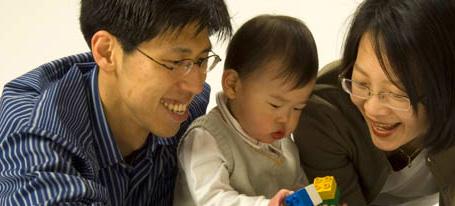Universal Newborn Hearing Screening Programme

Newborn hearing screening checks whether your baby hears well. All eligible babies can have newborn hearing screening free of charge.
If your baby has a hearing loss, finding it early will help their language, learning and social development. This is important for the children as well as their families/whānau and society.
The core goals of the Universal Newborn Hearing Screening Programme are based on international programme measures and are described as '1-3-6' goals:
1. Babies to be screened by 1 month of age
3. Audiology assessment completed by 3 months of age
6. Starting appropriate medical and audiological services, and early intervention education services, by 6 months of age.
This programme is jointly led by the Ministries of Health and Education to ensure that babies who have hearing loss receive ongoing support.
Our Whānau/Aiga/Family - Our Hearing Screening Story
A short video about the value and impact of newborn hearing screening on the lives of newborn babies with hearing loss, and their families.
In this section
-
Your baby may have screening before leaving the hospital and at the latest, screening should be finished by the time baby is 1 month old.
-
This diagram guides you through the Universal Newborn Hearing Screening process.
-
The Universal Newborn Hearing Screening and Early Intervention Programme (UNHSEIP) uses a two stage aABR screening test to screen for hearing loss.
-
Find answers to some commonly asked questions about the Universal Newborn Hearing Screening Programme.
-
There is a wealth of knowledge available on the internet. Below are some recommended sites.
-
These resources, and other resources provided by the Ministry of Health, are available to order from the Ministry of Health's HealthEd website.
-
Many New Zealanders participate in screening programmes and have their own stories to tell. We are privileged to be able to share some of those stories.
-
Hearing screening is performed by your local DHB.

